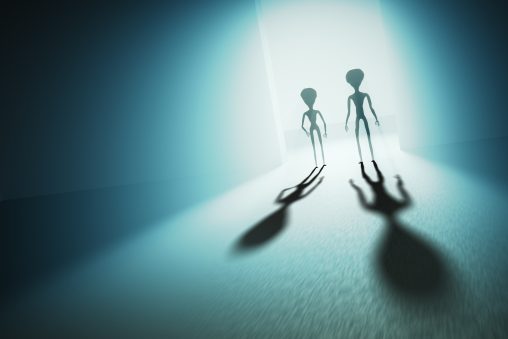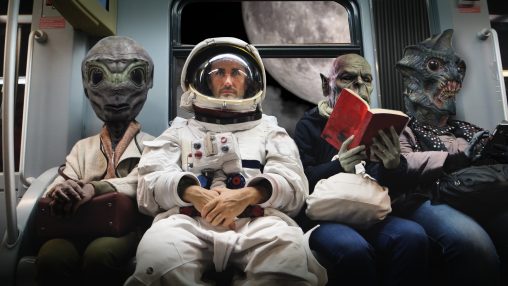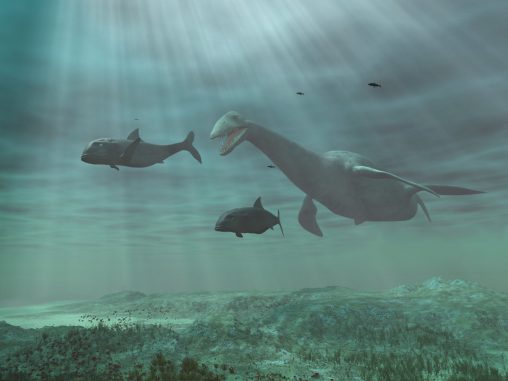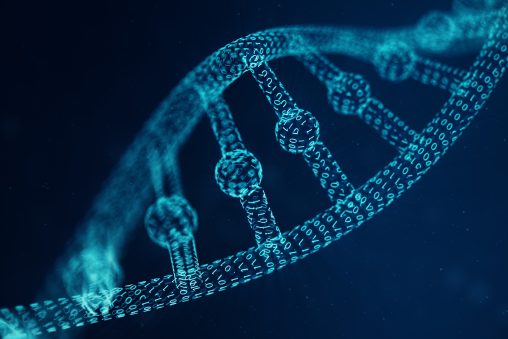Is there intelligent life out there?

Mankind seems to have a desire to find life out in the universe that borders on a yearning. Maybe it’s the idea of being alone in the universe that scares us, but given our own track record on earth there is every chance that an encounter with an extra-terrestrial intelligent lifeform may not go as well as we hope for. According to many scientists of evolution, however, this is something we’re not likely to have to worry about, now or any time soon.
You see, evolutionists believe the chances of finding anything out there are very slim. At first glance, you’d think they’re mad; after all, the universe is a big place, vast beyond comprehension in fact, with trillions of stars and planets. Indeed, it has been said that there are more worlds out there than sand grains on earth, so surely there has to be something else?
Statistically, you’d almost bet the mortgage on it, but apparently the math isn’t quite as tilted in favour of finding life as we tend to think. Let’s face it, most of us think it’s more a question of when than if we’ll encounter life before it encounters us – and some believe it already has! Science fiction has given us vivid images of what alien creatures might look like, and while there are many on earth who eagerly look forward to meeting Martians, Klingons, E.T. or little Roswell men like Paul, voices of reason are telling us it’s not likely to happen.

Qualifying life
The problem is, when we think of alien life forms, we tend to imagine weird and wonderful versions of what are essentially intelligent, often human-like species. In reality, we’re far more likely to encounter some basic bacterial form of life or even vegetation, which is also an organic lifeform, and it too can end up being very different from anything we’ve ever seen on earth. The statistical probability that some basic organic life has adapted to the mostly extreme conditions out there is actually quite good, given the sheer number of possibilities, but venture anything more advanced – like even an animal – requires an ecosystem to support it, and this dramatically reduces the odds.
The more we study and learn about the universe, the more our own green planet and the evolution it has made possible seems like an improbable act of chance, a lottery within a lottery. Yes, there is a so-called sweet spot, or zone within which planets resembling our own could exist, but they form just a tiny fraction of the trillions of worlds out there, and even then most are not suitable. By now, we’ve widdled the chances of sentient life down by much, much more than 99.9%—so to discover the ‘blue people’ of an Avatar-like world will require another leap of probability.

Are we unique?
It’s going to be hard enough to find green giraffe-like creatures or red glow-in-the-dark predators, but intelligent life of our own kind is another story altogether. To explain this, scientists ask us to think of our own world, and how life appeared and evolved here. Yes, there are millions of species on the planet, but out of all the ones that have ever lived on earth we are the only ‘intelligent’ ones, and even then we haven’t developed much beyond the level of ‘civilised apes’ still capable of savagery and stupidity. We depict aliens as being a mix of evil and sage-like wisdom, likely to reflect the forces at work within our own species, but there’s every chance that we are indeed unique and not likely to be visited by alien space craft simply because no other civilisation exists out there.
It’s a chilling and a reassuring thought at once, and one that many will dispel, but if our planet represents a one-in-a-trillion lottery sweepstake of circumstance that has made life, and its plentiful evolution, possible, then it’s fair to assume there aren’t many other worlds like ours out there – including few that could provide a fitting environment for humans. Maybe we will be able to colonise and adapt to some in the future, but the lottery of evolution appears to indicate that the chances of finding others there are slim, given the fact that homo sapien is the only animal to have evolved out of millions to become the sole shepherd of its planet.
Many animals are intelligent, can be trained, have cognisance and communicate amongst one another, even forming social groups and using tools in the manner that primitive humans did, but as clever as apes, dolphins and orcas are, we’re the only ones to have developed cities, music, culture, art, science, technology and philosophical reasoning. Our language and mathematics are codified and evolving, so we are unique on this planet, that much we know – and if you ask evolutionists the combination of available environment and the chance of it evolving an intelligent lifeform such as our own means the probability is great that we’re alone in the universe as well.

Adrift in a vast universe
Countless species on earth have developed limbs, organs, eyes, mouths and other features not dissimilar to our own, yet we remain the only intelligent lifeform on this planet, so the very spaceship we call home is an incredibly fortunate lottery of chance that has beaten the odds by trillions to one, looking at the rocky, icy, gaseous and quite frankly violent environments out there. They boil, freeze and are destroyed on a regular basis amid the chaos of a beautiful but chilling universe of worlds where all but a small number are even likely to be capable of sustaining anything more than the hardiest of cellular lifeforms.
From water and atmosphere, to soil and photosynthesis, the bounties heaped upon planet earth are rare indeed, trillion to one rare. So rare, in fact, that we haven’t even found a planet exactly like our own, much less any bacteria or plant life. So the happy/sad likelihood of it is that if we want to meet an alien lifeform, we may yet have to create it ourselves. Put differently, this may be the only spaceship in the universe with passengers on board.

First published in Essential Magazine










